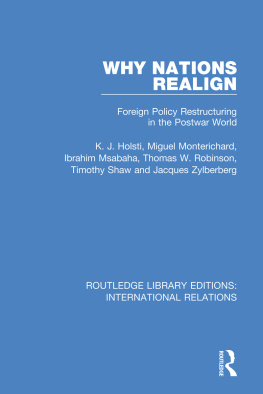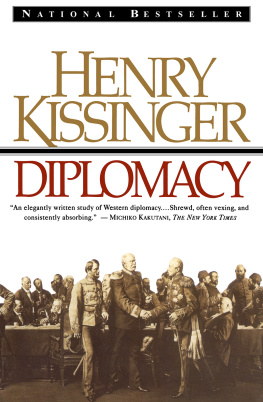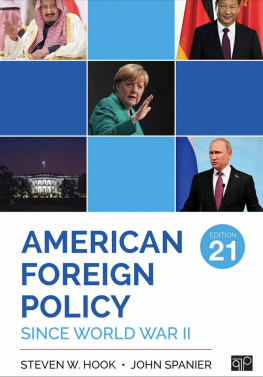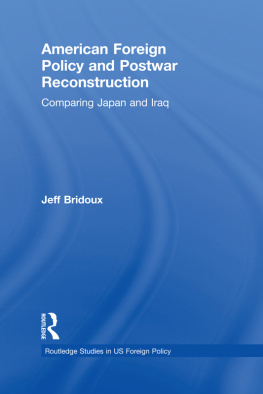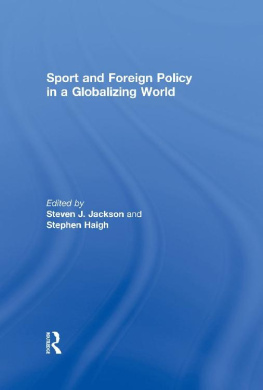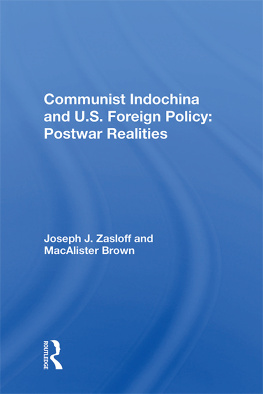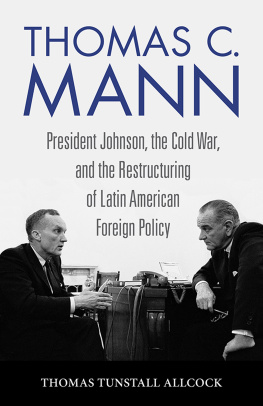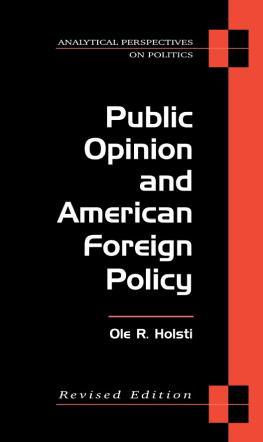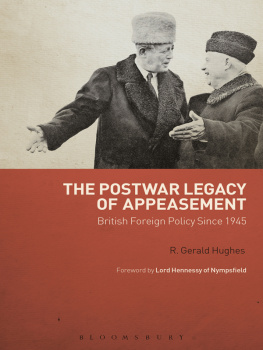Kal Holsti - Why Nations Realign: Foreign Policy Restructuring in the Postwar World
Here you can read online Kal Holsti - Why Nations Realign: Foreign Policy Restructuring in the Postwar World full text of the book (entire story) in english for free. Download pdf and epub, get meaning, cover and reviews about this ebook. year: 2015, publisher: Routledge, genre: Politics. Description of the work, (preface) as well as reviews are available. Best literature library LitArk.com created for fans of good reading and offers a wide selection of genres:
Romance novel
Science fiction
Adventure
Detective
Science
History
Home and family
Prose
Art
Politics
Computer
Non-fiction
Religion
Business
Children
Humor
Choose a favorite category and find really read worthwhile books. Enjoy immersion in the world of imagination, feel the emotions of the characters or learn something new for yourself, make an fascinating discovery.
- Book:Why Nations Realign: Foreign Policy Restructuring in the Postwar World
- Author:
- Publisher:Routledge
- Genre:
- Year:2015
- Rating:3 / 5
- Favourites:Add to favourites
- Your mark:
- 60
- 1
- 2
- 3
- 4
- 5
Why Nations Realign: Foreign Policy Restructuring in the Postwar World: summary, description and annotation
We offer to read an annotation, description, summary or preface (depends on what the author of the book "Why Nations Realign: Foreign Policy Restructuring in the Postwar World" wrote himself). If you haven't found the necessary information about the book — write in the comments, we will try to find it.
Kal Holsti: author's other books
Who wrote Why Nations Realign: Foreign Policy Restructuring in the Postwar World? Find out the surname, the name of the author of the book and a list of all author's works by series.
Why Nations Realign: Foreign Policy Restructuring in the Postwar World — read online for free the complete book (whole text) full work
Below is the text of the book, divided by pages. System saving the place of the last page read, allows you to conveniently read the book "Why Nations Realign: Foreign Policy Restructuring in the Postwar World" online for free, without having to search again every time where you left off. Put a bookmark, and you can go to the page where you finished reading at any time.
Font size:
Interval:
Bookmark:
INTERNATIONAL RELATIONS
Ibrahim Msabaha, Thomas W. Robinson,
Timothy Shaw and Jacques Zylberberg

by Routledge
2 Park Square, Milton Park, Abingdon, Oxon OX14 4RN
711 Third Avenue, New York, NY 10017
A catalogue record for this book is available from the British Library
ISBN: 978-1-315-66794-2 (Set) (ebk)
ISBN: 978-1-138-94007-9 (Volume 3) (hbk)
ISBN: 978-1-315-67449-0 (Volume 3) (ebk)
The publisher has gone to great lengths to ensure the quality of this reprint but points out that some imperfections in the original copies may be apparent.
The publisher has made every effort to trace copyright holders and would welcome correspondence from those they have been unable to trace.
Foreign Policy Restructuring
in the Postwar World
University of British Columbia
Ibrahim Msabaha
Thomas W. Robinson
Timothy Shaw
Jacques Zylberberg

This book is copyright under the Berne Convention. No reproduction without permission. All rights reserved.
40 Museum Street, London WC1A 1LU, UK
Park Lane, Hemel Hempstead, Herts HP2 4TE, UK
9 Winchester Terrace, Winchester, Mass 01890, USA
8 Napier Street, North Sydney, NSW 2060, Australia
Why nations realign: foreign policy restructuring in the postwar world.
1. World politics1945
I. Title
327'.09'04 D843
ISBN 0-04-351062-0
and printed in Great Britain by Mackays of Chatham
| Restructuring Foreign Policy: A Neglected Phenomenon in Foreign Policy Theory (K. J. Holsti) |
| (K. J. Holsti) |
(Timothy M. Shaw and Ibrahim S. R. Msabaha) |
(K. J. Holsti) |
| (K. J. Holsti) |
| Restructuring Chinese Foreign Policy, 195976: Three Episodes (Thomas W. Robinson) |
| An Abortive Attempt to Change Foreign Policy: Chile, 19703 (Jacques Zylberberg and Miguel Monterichard) |
(K. J. Holsti) |
Font size:
Interval:
Bookmark:
Similar books «Why Nations Realign: Foreign Policy Restructuring in the Postwar World»
Look at similar books to Why Nations Realign: Foreign Policy Restructuring in the Postwar World. We have selected literature similar in name and meaning in the hope of providing readers with more options to find new, interesting, not yet read works.
Discussion, reviews of the book Why Nations Realign: Foreign Policy Restructuring in the Postwar World and just readers' own opinions. Leave your comments, write what you think about the work, its meaning or the main characters. Specify what exactly you liked and what you didn't like, and why you think so.

